Get to Know Yaya Through the Stories of Flavours and Norwegian Seafood
Join Urassaya “Yaya” Sperbund in her kitchen where family, culture, and Norwegian ...
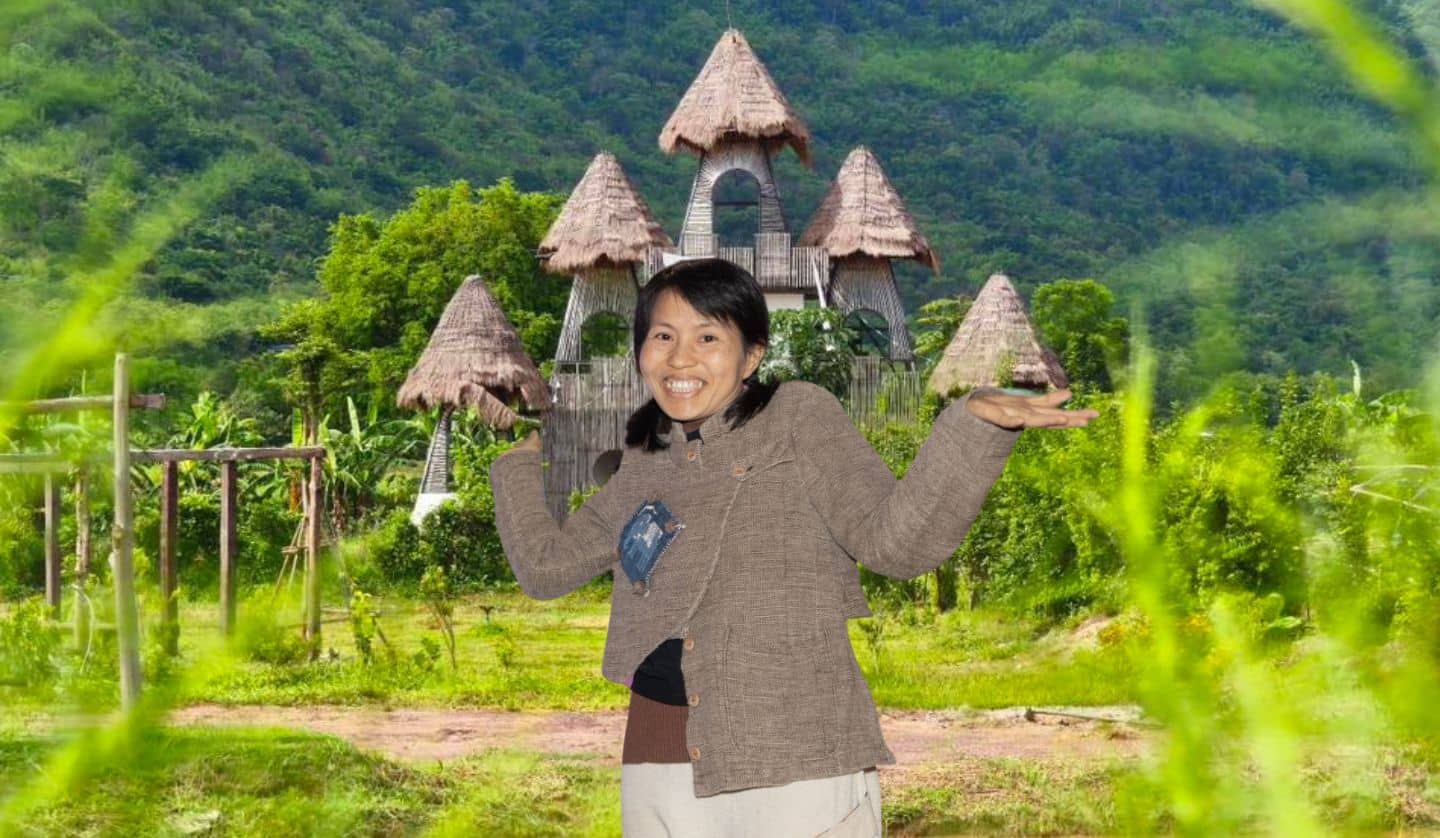
Every province in Thailand holds its own charm: stories, flavours and traditions that remain unseen by those who only pass through. For Lakkhana “Bum” Saenbungkho, founder of BananaLand in Phuho, Phu Luang in Loei, her mission is to uncover and celebrate that hidden beauty through community-led sustainable tourism.
“Some people think Loei is in the North, but it’s actually part of Isan,”
she points out the misconception people have of her hometown.
Built on her family’s ancestral land that was once a banana farm, her agritourism farm Banana Loei has evolved into a social enterprise that combines farmstay, activity to promote tourism and local wisdom, adapting from the sufficiency economy philosophy of Rama IX. We follow Bum’s journey with Banana Loei, exploring how her vision transforms the land into a hub for community and culture.
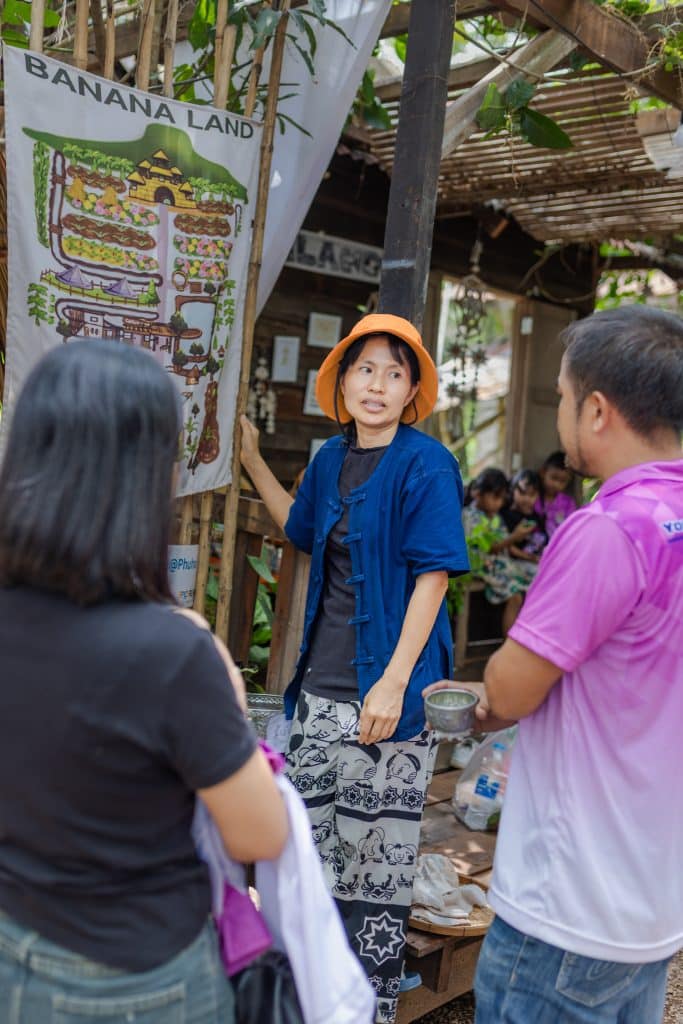
As she explains, the name Banana carries two meanings for her. The first reflects her ancestral land, which was once a banana farm, and how the fruits are among the local treasures of the area. The second embodies her vision of creating a green space, a place where banana trees and forests grow side by side, designed to be a “land of simple happiness”. In Thai, she calls it kluay-kluay, a playful phrase meaning “easy” or “effortless,” capturing her belief that joy and learning can come naturally through simplicity. Over time the banana farm has expanded to include other local products, from bamboo daybeds, handmade crafts, eco-print textiles and traditional weaving to local cuisine, a coffee shop, rice fields and even a straw castle.
“My agritourism project is guided by three core principles and two key conditions from King Rama IX’s philosophy of sufficiency economy: the three principles being moderation, reasonableness, and resilience, and the two conditions being knowledge and virtue, all aimed at promoting sustainable tourism. It was first called Banana Land, but we later renamed it Banana Loei after feedback that the old name wasn’t strong enough for branding purposes.”
Bum’s vision for this homestay is inspired by the challenges facing Loei, and by the need to raise awareness among locals, which she incorporates into the various programmes and events. It has become a place that shows the heritage of Loei while helping locals to gain more income.
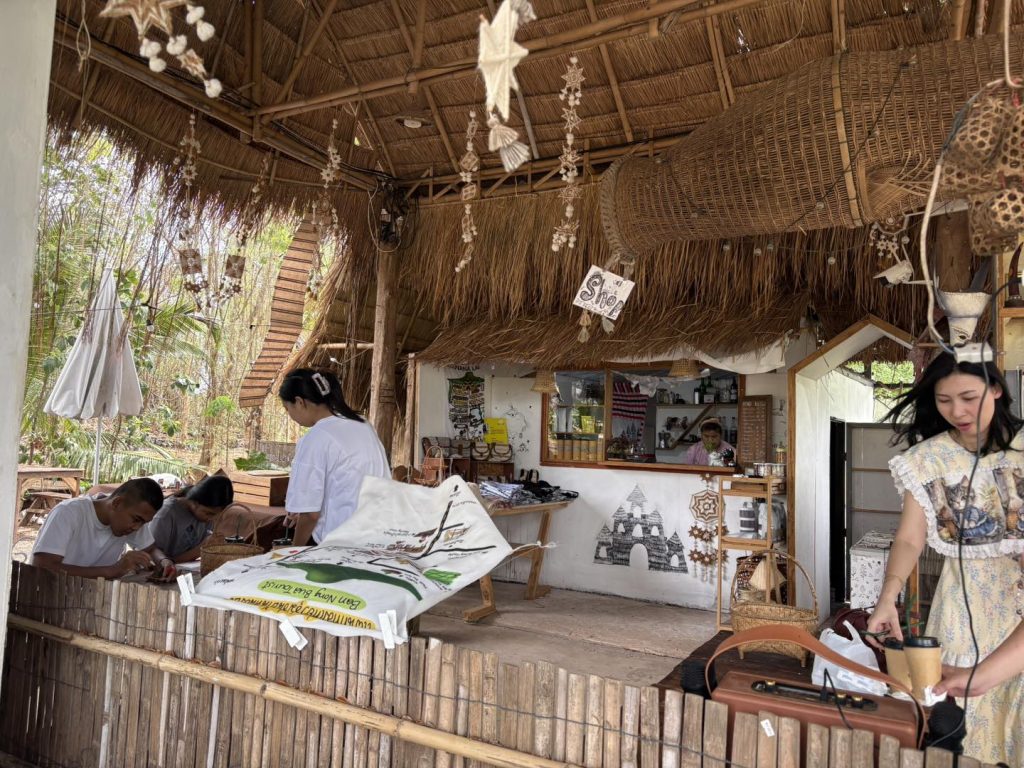
“For the homestay at Banana Loei, we use cotton for all essentials. When wild elephants began entering the community, we discovered that current crops like banana and sugarcane had become food for the elephants. Looking into how our ancestors survived in Phu Luang, we found that cotton was historically a major crop and safe from elephants. Inspired by this we revived cotton cultivation and traditional weaving techniques, producing blankets, towels, slippers, home goods and even clothing from locally grown cotton.”
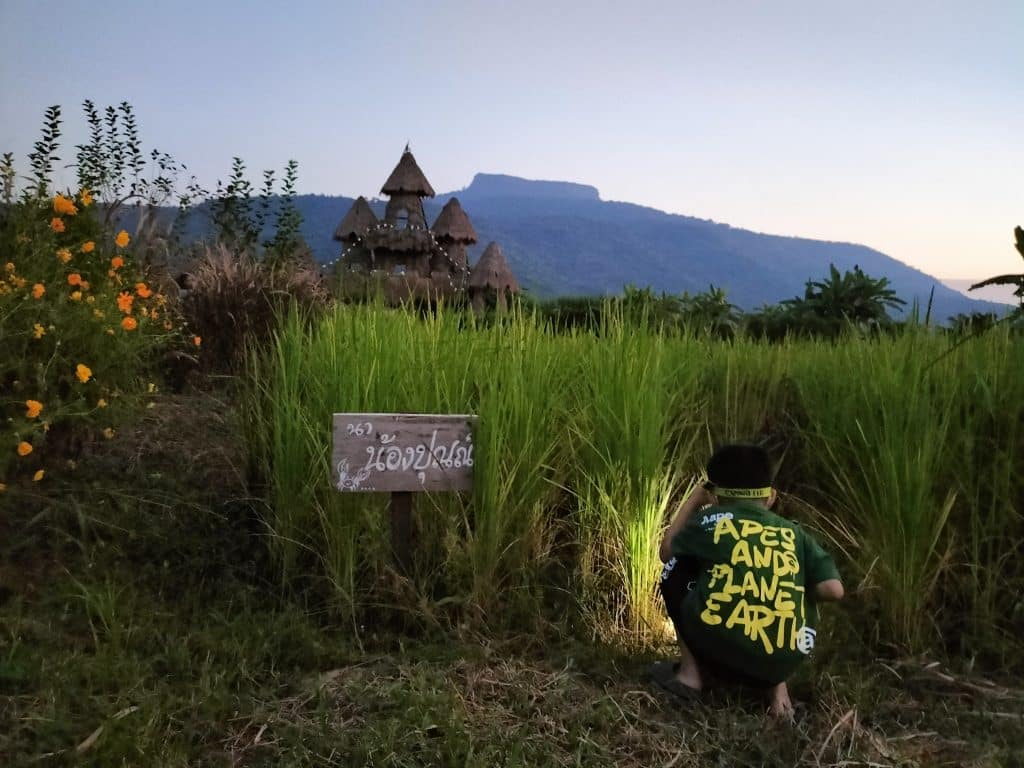
One of the interesting activities is the online rice field, designed for people who don’t have their own rice fields or simply want to join in the farm activities. Participants can experience planting and harvesting, all with brown rice as a healthier option.
“The idea for the online rice field came during the COVID-19 crisis. Our community tourism projects were hit hard, and we needed a way to generate income for the locals as visitors couldn’t come. Using the three principles and two conditions I’d learned, I asked myself: what do we have, what are we good at and who could benefit from it?”
Bum started researching, asking mentors and experts if it was feasible to create an online platform where people could “own” a rice field, so they could participate and support the community even from afar. In return what they get is the harvested rice packed and sent to their houses.
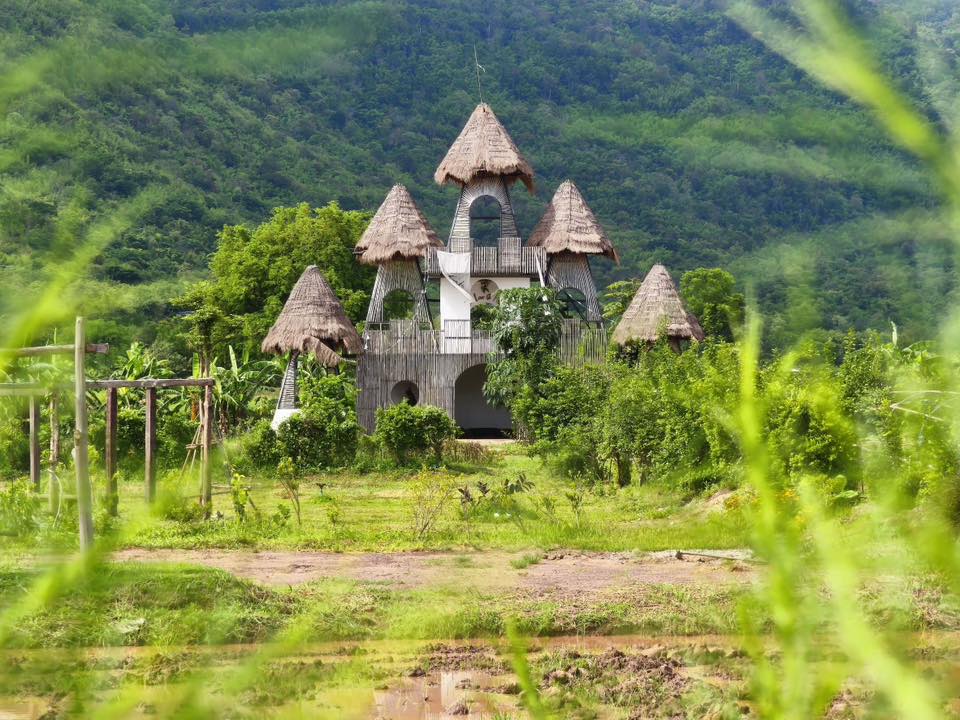
Another initiative is the straw castle, created as a solution to the traditional practice of burning straw and to promote environmental awareness. Instead of burning locals now exchange straw for vegetables or use it to build the castle installation, combining practical use with education. They have also created straw elephant figures for traditional ceremonies replacing sacks, adding a natural, colourful touch.
“Going back to my younger years, I started out working with a volunteer group Chuan Nong Aom Thawai Por Luang in 2007. I served as the Chair of the Children and Youth Council of Loei, which gave me the opportunity to attend various meetings and come across inspiring stories that I’ve been able to share with others. What surprised me most was realising that those who have the least access to this kind of knowledge are often people within our own community. On top of that I’m also a volunteer with the Ministry of Interior as part of the 60th cohort of the Youth Council, where we are encouraged to love our hometowns, value our communities and contribute to local development.”
Her early experiences working with children and young people sparked a question in her mind: What are the real challenges facing these children? The answer she received was profound: families were often separated, with parents working far from home, leaving children without warmth and support. Bum began to wonder how she could help parents stay closer to home and spend more time with their children that could be tied to helping the community as well.
In 2014, she received a Ford Foundation scholarship to study Social Enterprise, a relatively new concept at the time rooted in the late King Rama IX’s philosophy. It opened her eyes to how business could become a mechanism for community growth. Her first project, Banana Family, started in 2014, but it didn’t meet the community’s needs then. The idea of creating agritourism came after the incident with the elephants and her participation in the 2018 season of Win Win WAR Thailand, a competition for social enterprises.
“Wild elephants wandered straight into the village and caused havoc. That year happened to coincide with the competition I was entering. We couldn’t continue planting as much as before because of the elephants. It was then that I had a realisation: if farming on a larger scale wasn’t feasible, why not focus on tourism instead? That’s how Banana Loei was born. The idea was simple: to create a community-led tourism space that grew organically from what we already had, turning even the smallest things into experiences for visitors to enjoy.”
She became one of the five finalists and received support from the Office of Tourism Development Region 5 (now OT Loei), and Banana Loei evolved into a community-driven ecotourism project. Activities are designed around sustainability, with the environment at the heart of every initiative, while the values Bum learned from her early volunteer work about saving money, nurturing the home, caring for children, and valuing time are woven into the community’s management and operations. This encourages locals to return to work in their community rather than moving to the city, giving them more time to spend with their families.
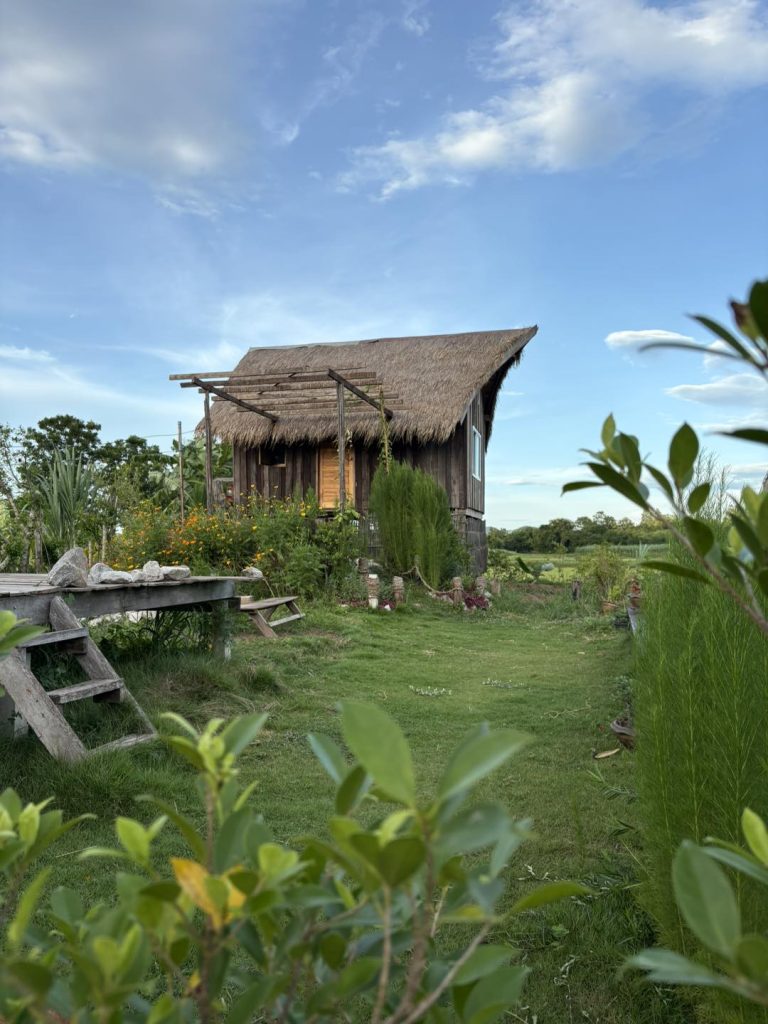
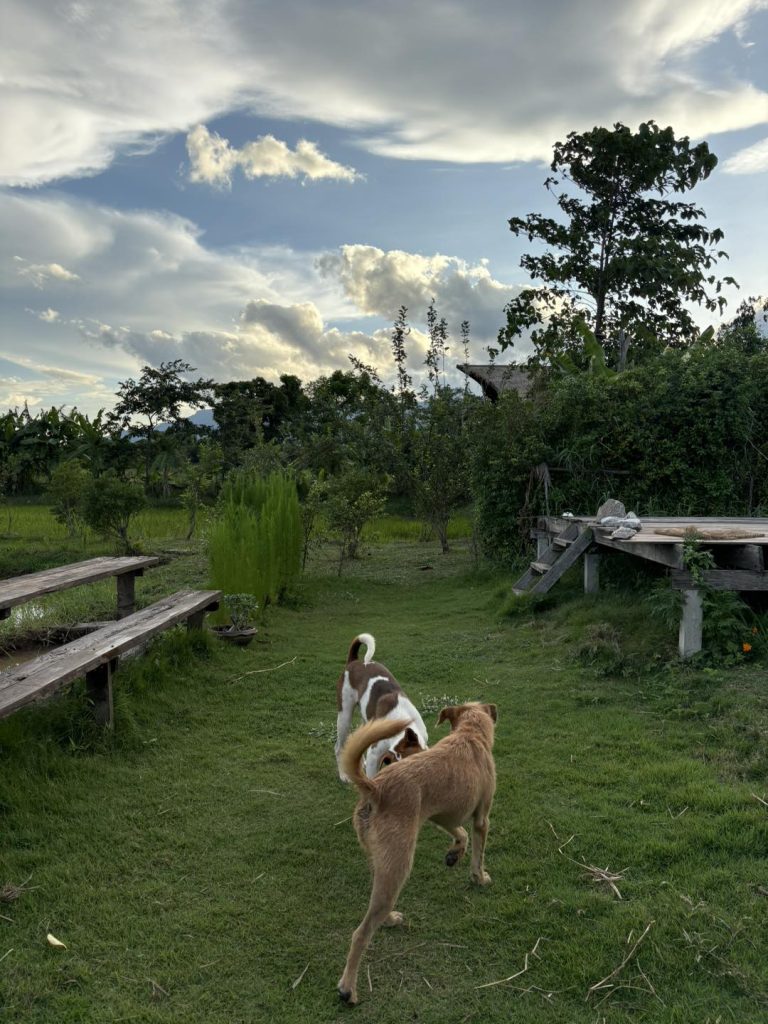
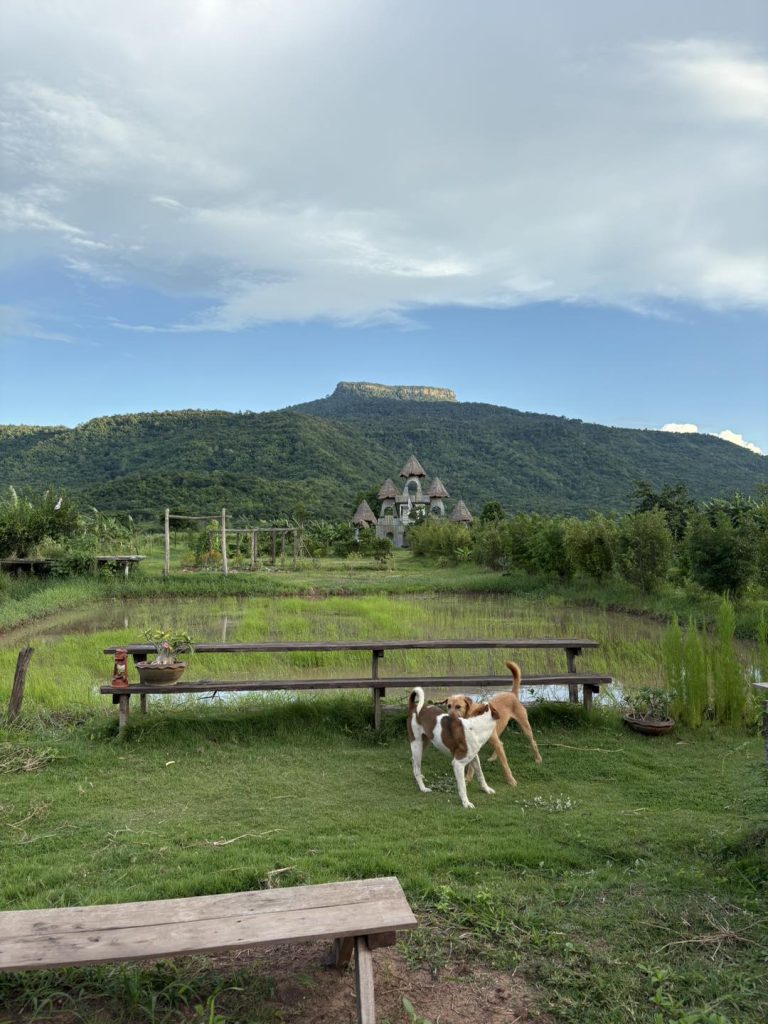
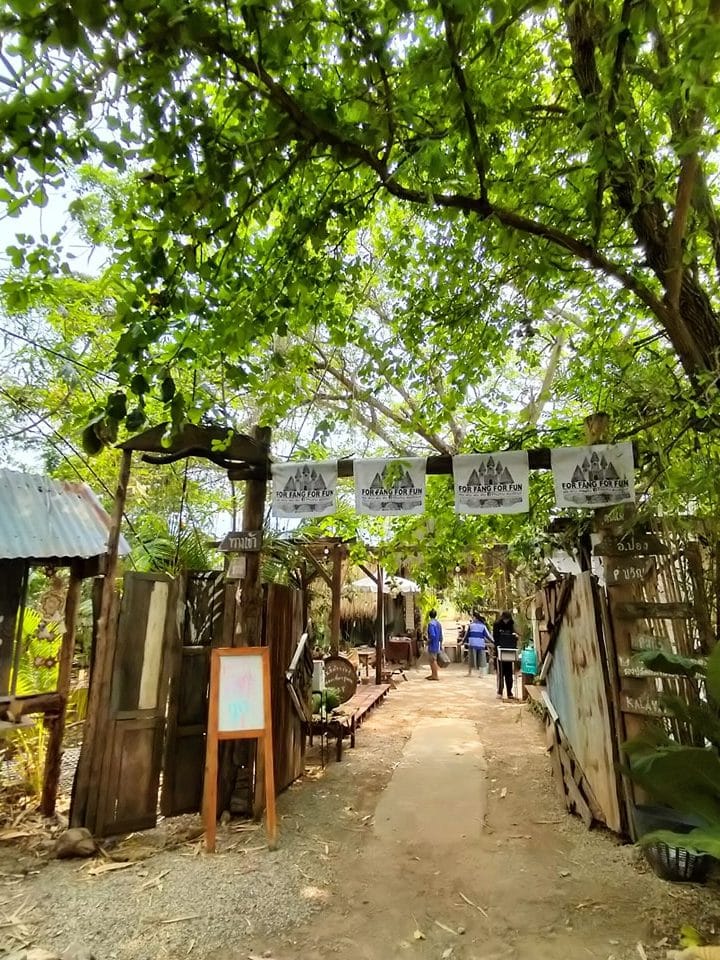
From the very first day of her work in the province, she began to see the potential of Loei getting more recognition and locals earning incomes. Tourism isn’t just about attracting visitors, but about creating strong relationships within the community and opening up fresh perspectives.
Her mission is to share the lifestyle and heritage of Phu Luang, Loei, with visitors, helping both locals, young and old, and tourists to appreciate the area’s knowledge and wisdom, and understand that valuing history is essential for meaningful development.
“I envision Banana Loei expanding to multiple locations, perhaps in Chiang Dao and beyond, sharing my know-how, ideas and approaches to community management. I believe every region has talented people and valuable ‘seeds’ waiting to grow. My concept is simple: bring people together to do what they love in a way that respects the community and the environment. For me, tourism is a form of sharing, introducing visitors to local ways of life, preserving heritage, passing knowledge to the next generation, and creating sustainable income for the community.”
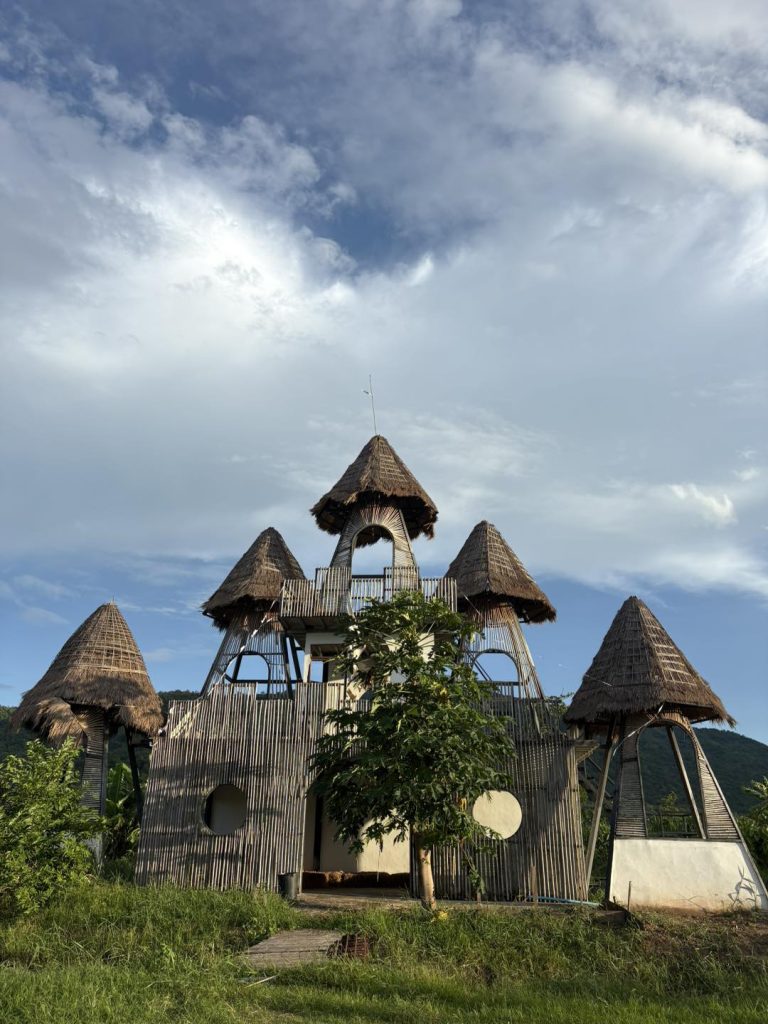
Join Urassaya “Yaya” Sperbund in her kitchen where family, culture, and Norwegian ...
Saturdays are already made for Salmon, now there's even more reason to ...
What’s your #MySalmonStory? Join Thailand’s Tastiest Movement with Seafood from Norway There’s ...
VERY THAI: In this regular column, author Philip Cornwel-Smith explores popular culture and topics ...
Wandering around the globe, try out the signature tastes of cultures across ...
Twisted punishments and psychological horror return in Girl from Nowhere: The Reset, starring ...
Wee use cookies to deliver your best experience on our website. By using our website, you consent to our cookies in accordance with our cookies policy and privacy policy